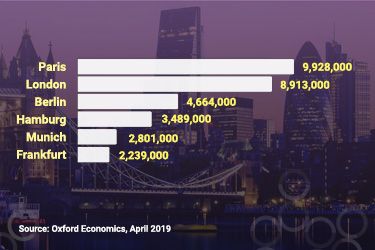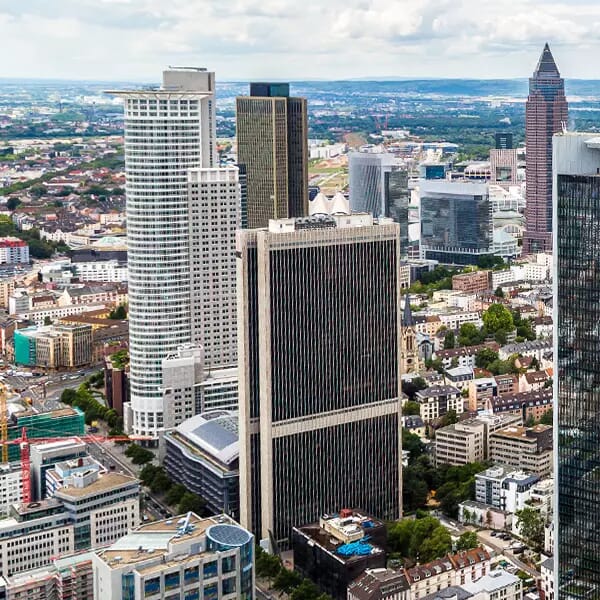 No attribution required
No attribution requiredLondon tops list of future city growth prospects in Europe
Per a report from Aviva, London and Paris are the world’s leading cities for future real estate growth
Aviva plc, British multinational insurance company, has yesterday published research highlighting the 12 European cities they believe will be the forefront of growth in the coming years.
They came to these conclusions after developing their ‘Future City score’, which takes into account more than 30 metrics. Those that score well on this basis should see a consistently strong demand for office space over the long term.
According to the report, “the role of a city today is to facilitate knowledge exchange and information sharing to nurture idea creation”, and the cities that do this best are those that are the ones that are able to attract talent, cultivate clusters of high value add economic activities and have scale. In the modern era of globalisation, cities that can attract global talent will benefit from global connectivity.
 London and Paris have a “Future City” score significantly higher than every other city. This is because these cities act as magnets for global talent, and in turn their scale gives them a major competitive advantage. This in turn promotes the development of office space, and also residential as people will migrate to the cities.
London and Paris have a “Future City” score significantly higher than every other city. This is because these cities act as magnets for global talent, and in turn their scale gives them a major competitive advantage. This in turn promotes the development of office space, and also residential as people will migrate to the cities.
London is the global leader in talent with a relatively youthful population (24% of central London is 25-34), great population growth prospects and the highest amount of graduate jobs in the UK - 60% of workers in London are tertiary educated. With a student population of over 400000, future supply of talent is guaranteed.
Paris is the largest city in Europe and hosts 29 of the 31 French companies listed in the Fortune Global 500. Its ranked fifth in the QS Best Student Cities Ranking with 18 universities, including the Ecole Polytechnique. There is a significant concentration of knowledge intensive business services in the city, where around a third of the 55 million square metres of office space in Paris is used.
There are also a handful of European cities that are intensely committed to the progression of technology and the heavy flow of startups create jobs, attract people to live in the city and as a result promotes more residential real estate.
Berlin boasts perhaps the largest tech hub outside of Modern Asia, where its estimated that a start-up is founded every 20 minutes. Over 100000 professional developers now live in the city, which Berlin’s well documented tolerant and forward-thinking culture helping to attract talent.
Stockholm also has the reputation of one of the world’s most innovative cities, as it is home to more than $1B+ companies per capita than anywhere outside of Silicon Valley. Consequently, a higher proportion of people work in tech-related jobs than any other European city.
For more in-depth discussion regarding the future of real estate, Europe GRI 2019 is taking place 11-12 September in Paris.
Article by Matt Harris



